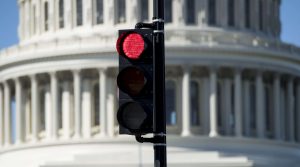The Role of Non-Aggression Principle in Libertarian Policy Making
The Non-Aggression Principle (NAP) is a fundamental concept in libertarian philosophy, forming the ethical foundation of many libertarian policies. This article explores how the NAP influences decision-making in libertarian circles and its implications for public policy and personal freedom.
What is the Non-Aggression Principle?
The Non-Aggression Principle is a moral stance asserting that aggression against another person’s property or person is inherently wrongful. In libertarian thought, aggression typically refers to the initiation of force or coercion, whether that be physical violence, fraud, or theft. The principle encourages individuals to resolve conflicts peacefully and to respect each other’s rights, thereby promoting a voluntary society built on mutual consent.
Historical Context of the NAP in Libertarianism
The Non-Aggression Principle has its roots in classical liberal thought, drawing from philosophers like John Locke and John Stuart Mill who championed individual liberty and property rights. However, it was libertarian theorists such as Murray Rothbard and Ayn Rand who solidified the NAP as a cornerstone of libertarian ideology. Their works emphasized the importance of individualism, free markets, and limited government, where the NAP serves as a guiding principle for crafting policies.
The NAP as a Guiding Policy Framework
Promoting Individual Liberty
One of the most significant roles of the NAP in libertarian policy making is its emphasis on individual liberty. Libertarians advocate for policies that maximize personal freedoms as long as they do not infringe on others’ rights. This approach generally leads to a limited government, where intervention is minimized, thereby allowing individuals to freely interact, trade, and make choices without coercion.
Advocating Non-Interventionism
The NAP also extends to foreign policy. Libertarians often advocate for a non-interventionist stance, arguing against military aggression and entanglement in foreign conflicts. By adhering to the NAP, libertarians promote the idea that nations should resolve disputes through diplomacy rather than through the use of force.
Encouraging Decentralization
Central to the NAP is the notion that power should be decentralized. Libertarians argue that local communities are better equipped to handle social and economic issues than a distant federal government. This decentralization aligns with the NAP as it fosters voluntary associations and cooperative solutions, minimizing the chances of aggression and coercion inherent in large, centralized governmental structures.
Implications of the NAP in Social Policies
Criminal Justice Reform
The Non-Aggression Principle influences libertarian views on criminal justice reform. Libertarians often argue for the decriminalization of victimless crimes—actions that do not cause direct harm to others—such as drug use and sex work. Adhering to the NAP, they contend that individuals should have the autonomy to make choices regarding their bodies and lifestyles, provided they do not aggress against others.
Property Rights
Strong property rights are essential within the NAP framework. Libertarians believe that individuals have the right to own and control their property without interference. Policies that advocate for robust property rights can lead to increased economic freedom, as ownership incentivizes investment and responsible stewardship of resources.
Criticisms and Challenges of the NAP in Policy Making
Despite its foundational importance within libertarianism, the Non-Aggression Principle does face criticism. Detractors argue that it can be overly simplistic in complex societal issues. For example, critics point out that the NAP does not adequately address systemic inequalities or the potential need for collective action to address public goods and services. Thus, while the NAP provides a clear ethical framework, its application in nuanced policymaking remains a topic of debate.
Conclusion: The Future of the NAP in Libertarian Policy Making
The Non-Aggression Principle serves as a vital touchstone for libertarian policy making, shaping the movement’s approach to issues related to individual freedom, government intervention, and social justice. By continuing to emphasize the importance of peaceful interactions and voluntary cooperation, the NAP will likely remain central to the future of libertarian thought. For advocates of personal and political freedom, understanding and promoting the NAP can help cultivate a society grounded in mutual respect and consent, forging a path toward a more libertarian world.
Call to Action
If you’re interested in learning more about how the Non-Aggression Principle applies to various areas of life and policy, consider exploring libertarian literature or engaging with local libertarian groups to discuss these principles. Understanding these concepts is crucial for anyone looking to contribute to a more equitable and free society.
Share this content:








Post Comment